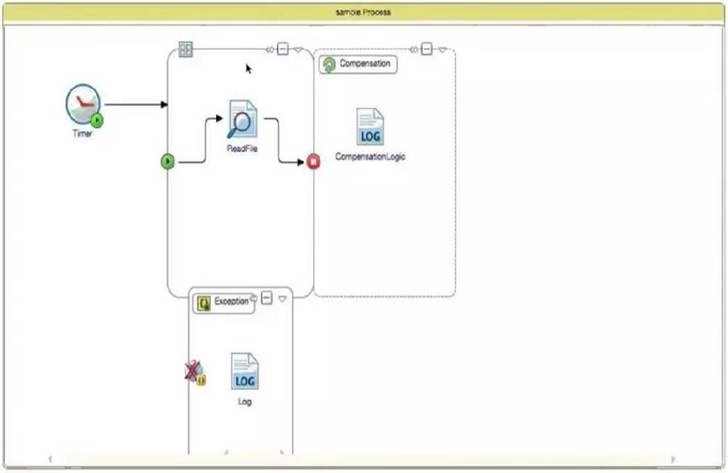Tibco TCA Tibco BusinessWorks TIBCO BusinessWorks Certified Associates Exam Online Training
Tibco TCA Tibco BusinessWorks Online Training
The questions for TCA Tibco BusinessWorks were last updated at Apr 14,2025.
- Exam Code: TCA Tibco BusinessWorks
- Exam Name: TIBCO BusinessWorks Certified Associates Exam
- Certification Provider: Tibco
- Latest update: Apr 14,2025
Select the 2 types of modules that are available in TIBCO BusinessWorks. (Choose two.)
- A . Application Module
- B . BusinessWorks Module
- C . Shared Module
- D . Package module
An application you have created with activation set to Single AppNode is deployed into an AppSpace consisting of two AppNodes (A1 and A2). One of the administrators accidentally stops AppNode A1.
What is the expected behavior of your application?
- A . The application is stopped on A2, and no requests are processed
- B . The application will be activated on A2, and requests are processed.
- C . The application will be activated on A2, but no requests are processed.
- D . The application is standby on A2, and no requests are processed.
Which two statements are true about the fault tolerance feature of TIBCO ActiveMatrix BusinessWorks applications? (Choose two.)
- A . Managed fault tolerance requires persistence mode to be set to memory, while non-managed fault tolerance requires persistence mode to be set to group.
- B . Managed fault tolerance requires persistence mode to be set to group, while non-managed fault tolerance requires persistence mode to be set to datastore.
- C . Managed fault tolerance supports checkpointing. while non-managed fault tolerance does not support checkpointing.
- D . Managed fault tolerance requires activation mode to be set to Single AppNode. while non-managed fault tolerance requires activation mode to be set to Multiple
- E . In managed fault tolerance. AppNodes are aware of other AppModes in the AppSpace. while in non-managed fault tolerance. AppModes are unaware of other AppModes in the AppSpace.
In order to secure the access to the REST API of the TIBCO ActiveMatrix BusinessWorks Agent, which file controls the setting that enables security and which types of passwords are accepted?
- A . The setting is controlled in bwagent.tra, and the passwords are accepted in OBF, MD5, and CRYPT format.
- B . The setting is controlled in bwagent.ini, and the passwords are accepted in OBF, MD5, and CRYPT format.
- C . The setting is controlled in bwagent.ini, and the passwords are accepted in SHA, PKCS5 and CRYPT format
- D . The setting is controlled in bwagent.tra, and the passwords are accepted in SHA, PKCS5, and CRYPT format.
What file packages all modules into individual JAR files?
- A . XSD
- B . XML
- C . BWP
- D . EAR
Refer to the exhibit.

What happens to the process if the Read File activity throws a FileIOException?
- A . Only the compensation handler is executed.
- B . The job errors out since there is no fault handler for FilelOException
- C . Both the fault handler and compensation handler is executed.
- D . Only the fault handler is executed.
Select 2 types of shared objects that can be included in shared modules. (Choose two.)
- A . XML files
- B . WSDL files
- C . Schema files
- D . Network configuration files
What HTTP method do you use to create a resource at a known URI or update an existing resource?
- A . PUT
- B . POST
- C . GET
- D . DELETE
You have a TIBCO ActiveMatrix BusinessWorks application running on multiple AppNodes, which are part of the same AppSpace. You want to read or update the module shared variable state.
Which option should you select?
- A . bw.engine.persistenceModee = "true"
- B . bw.engine.persistenceMode = "datastore"
- C . bw.engine.persistenceMode = "AppSpace"
- D . bw.engine.persistenceMode = "group"
Latest TCA Tibco BusinessWorks Dumps Valid Version with 60 Q&As
Latest And Valid Q&A | Instant Download | Once Fail, Full Refund

